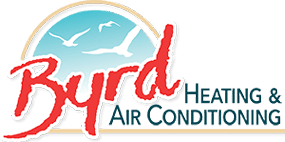An uncomfortable Hilton Head, SC home can keep you from sleeping well and make it difficult to relax after a tough day at work. Bad smells and a house that’s always too hot or too cold could keep friends and relatives from visiting you as well. Common home comfort issues that you should watch out for include problems with humidity, incorrect HVAC system sizing, poor insulation, and excessive dust.
Problems With Your Home’s Humidity
High humidity in summer can make you feel sweaty and hot. It also encourages mold growth and pests. A professional can install a whole-home dehumidifier in your ductwork to make your home feel cooler and more comfortable. You should also look for leaks in your plumbing or your water heater that could be adding moisture to your air.
However, low humidity can also make your home less comfortable. It can cause dry eyes, dry skin, nosebleeds, and other health problems. If your air is too dry in the winter, use a humidifier. You can choose a whole-home model or a smaller portable model that works in one or two rooms at a time. A humidifier can lower your utility bills by making your home seem warmer without using as much power as your heater. Humidifiers can also prevent annoying static electricity.
Incorrect HVAC System Sizing
If your HVAC system isn’t the right size for your house, you could have to pay more for installation. A system that’s too small or too big could also increase your utility bills and create uncomfortable warm or drafty areas in your home. When a heating or air conditioning system is too small, it usually runs continually. A system that’s too small can’t get your home to stay at the temperature you choose. This arrangement could shorten your system’s life and cause inconvenient, expensive breakdowns.
HVAC systems that are too large heat or cool the air quickly and then shut off. They come on and turn off often, making distracting noises. This problem can waste energy and lead to high humidity in the summer. Since a large air conditioner doesn’t stay on as long as a smaller model, it can’t dehumidify the air well on its own.
To find the correct size for your home, your HVAC technician should perform a load calculation that considers the climate, the amount of shade near your home, the number of people in your family, and other factors. Most experts use specialized computer programs to complete these calculations.
Poor Insulation
Poor insulation or gaps in your insulation can waste energy and cause uncomfortable warm or cold spots in your home. These problem areas could also let pollen, dirt, mold, and humid or dry air into your house, causing poor indoor air quality. You can look for gaps in your insulation by shutting off your HVAC system. Next, light a stick of incense or a candle. If the smoke from the incense or the flame from the candle moves, a leak could be nearby.
Make sure you check your insulation for mold, gaps, and other problems. You can seal many leaks or cracks around doors, windows, and electrical outlets with caulk or weatherstripping. You can also add insulation to your ductwork or the pipes in your plumbing system to save energy.
Excessive Dust
Plenty of dust in your home could be a sign that you need to change your HVAC system’s air filter or that you have a leak in your ductwork. You should look at your air filter once per month and change it if it’s dirty.
Make sure you change your filter at least every three months. A clean air filter could also help you save energy. To keep dust away, you should vacuum often and ask people to take off their shoes when they enter your home. If you still have trouble with dust, you could have dirty ductwork, a leak in your insulation, or a leak in your ductwork.
Byrd Heating and Air Conditioning is a Factory Authorized Carrier Dealer with more than 30 years of experience. We can help you install, maintain, and repair a variety of home heating systems and air conditioning equipment. Call us anytime at 912-373-8447 for help with keeping your home comfortable.
Image provided by Bigstock

